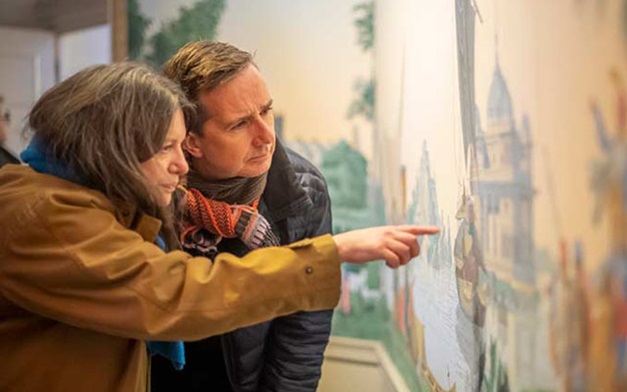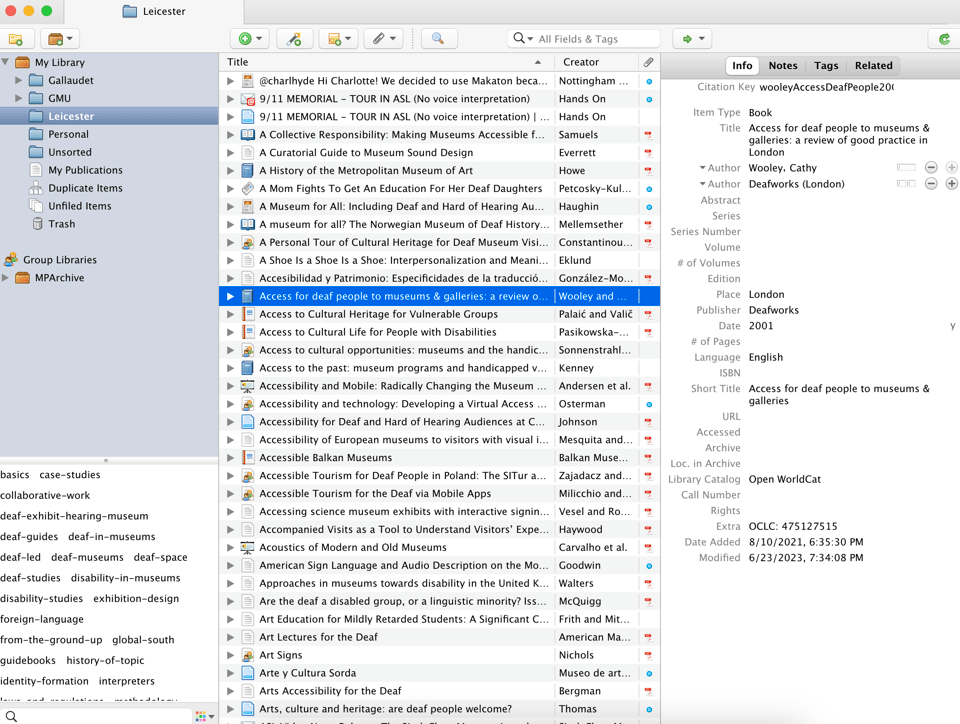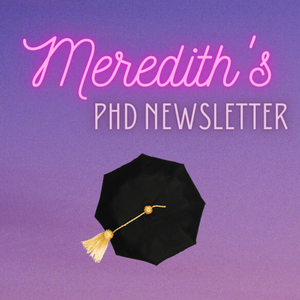The journey so far...
Where are we going, and why am I in this hand basket?
Distilling three years of work into a single email feels impossible, but let's give it a shot. I am focusing on the lead-up to fieldwork, and the next email will be about the fieldwork itself. I'm not planning on emailing constantly - more likely weekly, or even less - but I do want to catch up a little bit.
Supervisors

First, I want to introduce my supervisors: Suzanne MacLeod and Richard Sandell. Richard is a major reason I applied to the University of Leicester, as I first became aware of him through a book he edited, Re-Presenting Disability: Activism and Agency in the Museum. His slate of PhD students was full, so he recommended Suzanne, who has also done substantial research on disability and museums, but he stayed on as a second advisor. Suzanne has proven to be wonderful and the two of them together have been amazing.
Literature Review

I started my PhD in September 2020 by reading a lot. I had already collected many articles on deaf people and museums in my Zotero account, and I read many more to produce my literature review. It took longer than I expected, but I think this sort of thing is never done anyway - there is always more being published on a topic, so I will presumably revisit the lit review down the road.
One of the most important things I learned during the lit review is that there are apparently no deaf researchers working on this topic. I have found a small number of deaf people working on deaf accessibility in museums, creating access and then writing about it, but I seem to be the only person conducting a long-term research study. This brings layers of impostor syndrome - am I "deaf enough?" Am I arrogant for thinking I'm the only one? Am I good enough? But in my entire lit review, I have not found anyone else doing this work who identifies as deaf.
Theoretical Framework

I am situating my research in the field of Critical Disability Theory. The field of Critical Deaf Studies is in progress, but too new for me to work from; Critical Disability Theory has been around for 20-25 years.
I am especially interested here in applying crip theory and post-colonialism; Michel Foucault, who has been plaguing me since undergrad, is probably also going to show up. I am also committed to the inclusion of the Global South in this research: we cannot learn from white, wealthy, western cultures alone.
My theoretical framework was probably the easiest part to write, which is funny, because it is the hardest part to understand.
Methodology

It has taken me about a year to craft my methodology. I needed to figure out what I wanted to know and then how to find that out. The real answer to "what I want to know" turns out to be "what makes deaf people feel good in museums." So I had to figure out how to ask people about their ✨ feelings ✨ despite having no psychology background.
My research design includes:
- Practice Review - Go to museums. Write down what they are doing for deaf people.
- Staff Interviews - Talk to museum staff who have worked on accessibility for deaf people. Take notes.
- Accompanied Visits - Walk around a museum with a group of deaf people. Observe how they interact with the museum and each other; take notes.
- Focus Groups - Take those deaf people I just walked around with, sit them down, and ask them questions. (Videotaped, but probably some note taking.)
After that, I will use qualitative analysis to work with the data, encoding comments from participants by theme. I have no background in statistics, either, so I will use whatever software my supervisors are most familiar with (I think it was R).
So, that's where I am so far. Next time, I'll cover my fieldwork plans. I feel like this email is a little long - but definitely shorter than some of the newsletters I get! I enjoy images in newsletters, so I've included them; if I get a bunch of messages saying "no, it's horrible" I will probably change it, but they make me smile.
Thanks for reading, see you next time!

PS: So far my writing is at about 13,000 words, a little over 30 single-spaced pages when I compile it in Scrivener.
